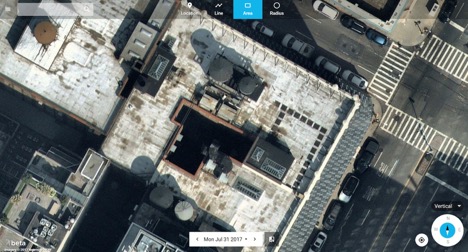Metal Roofing Alliance Sounds Off as Spring Rainy Season Approaches

Some homeowners find hearing the truth about metal roofs disquieting.
It’s a common debate as the peak rainy season approaches, especially among homeowners as they consider re-roofing projects this spring: Are metal roofs really any noisier, and if they are, is that a pro or a con?
“Homeowners typically fall into one of two camps—they either want to hear the patter of rain on their roof, or they don’t,” said Renee Ramey, executive director of the Metal Roofing Alliance. “A lot of people think the sound of rain is soothing and will help them sleep without the need for a fancy white noise machine. For others, they are worried the sound may be too disruptive.”
In either case, the issue of noise can be a deciding factor for homeowners who are considering replacing a roof. For those who want to turn up the volume of rooftop rainfall, the reality may come as a wet blanket: The fact is a well-constructed metal roof simply won’t transmit any more sound than an asphalt roof.
Hearing is believing.
Ramey says it’s easy to understand how the myth of noisy metal roofs started. On its own, metal can make a pinging or metallic ringing noise when struck. However, for a roof, sound transmission depends not only on the roofing material, but the roof decking, insulation and installation techniques.
Quality metal roofs installed over a solid substrate such as plywood or even an old asphalt roof, with proper insulation and fasteners, will greatly reduce sound transmission. Today’s metal roofing material is often manufactured with formed or texturized patterns that help break up the impact of drops hitting the roof, leading to reduced sound. The result is a roof that is no louder than other roofing types.
“If homeowners really want to hear the sound of rain, they are better off adding skylights. Which you also can do when installing a metal roof, by the way,” Ramey added.
According to the MRA, a noisy metal roof can be a red flag that the roof wasn’t installed according to the manufacturer’s recommendations, or that there is a lack of proper insulation. Too-few fasteners, fasteners that are loose or are incorrectly placed can be an issue. Roof underlayment also can make a big difference. Foam insulating panels or mats installed between the sheathing and roofing material not only can reduce sound but provide benefits such as increased efficiency and protection. Additionally, the shape of roof is a factor when it comes to sound, no matter what material is used. A roof with a higher profile and more attic space tends to be quieter than a flat roof.
Metal roofs offer additional benefits for those who reside in rainy regions. Thanks to tight seam construction, protective coatings and the natural water-shedding ability of metal, properly installed metal roofs help prevent leaks and problems that can allow moisture to seep into a home’s interior. They reduce maintenance caused by moisture that plague other types of roofs, such as helping prevent the growth of moss and fungus. That makes metal a top choice for homeowners looking for maximum long-lasting performance and simple, worry-free maintenance.
“With any roof, the whole is greater than the sum of its parts,” said Ramey. “A quality metal roof that has been properly installed will deliver a lifetime of reliable protection, and for the vast majority of homeowners, that’s music to their ears.”
About Metal Roofing Alliance (MRA)
Representing metal roofing manufacturers in the United States and Canada, the Metal Roofing Alliance (MRA) was formed in 1998 to help educate consumers about the many benefits of metal roofs. The main objective of MRA is to increase awareness of the beauty, durability and money-saving advantages of quality metal roofs among homeowners, as well as to provide support for metal roofing businesses and contractors. For more information, visit MRA.
Become an MRA member.






















Comments
Leave a Reply
Have an account? Login to leave a comment!
Sign In